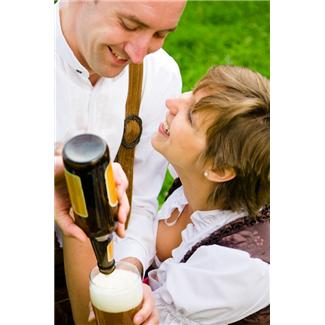Health
Alcoholism and Recovery During the Holidays
Experience and Feedback on Relapse During the Holidays
One year when I asked for feedback from the group, there were about 75 recovering patients (from a few months to several years) and about 75 family members. Approximately half of the group was quite worried about the nearing holidays. In checking closer, it was nearly one hundred percent family members or close friends who were concerned.They often talked about terrible Christmases from the past being ruined because of a family member’s drinking. They described their fear, embarrassment, and financial hardship. The holidays had truly been a horrible experience for many of them. Several described doing their best to keep their loved one sober during the holidays with disastrous results.
When the recovering alcoholics were asked about holiday relapse, very few had any particular concerns and the few who did said New Years Eve might be a temptation. Most who discussed relapse didn’t attach it to any particular time of year. Often fear of complacency, needing mood altering medication for dental work or pain, and making bad decisions were their primary concerns.
Surprising Stories of Relapse and Sobriety
When soldiers were drafted during World War II there was a concern that the sober alcoholics wouldn’t be able to stand the stress of war. However, their records of sobriety were outstanding! It is described in the book The Twelve Steps and Twelve Traditions.
Interesting and reoccurring stories were told by the recovering crowd. The host who insisted on making them a drink which looked like an alcoholic drink but without the alcohol came up frequently. Only those very early in recovery seemed to appreciate that. They didn’t want people to know they weren’t drinking. Alcoholics who had several months to years of recovery had various reactions, from seeing it as good but misguided intentions to a few finding it annoying and demeaning. Those with the most recovery time tended to see it as humorous.In the Big Book the story of Doctor, Alcoholic, Addict gives some insight into the nature of addiction. I happened to be fortunate enough to hear the author speak at events two times.
He explained how very late in his alcoholism when his very survival was at stake he had an insight into craving. He could not see himself like other alcoholics; he didn’t crave the alcohol or drugs, he just always returned to using sooner or later. The physician had a
It is easy to over think this process, but understanding the basics of alcoholism and addiction is not difficult. The situation that gets in the way is being told myths for so many years. It is very difficult to clear our mind of this old and dangerous information. By protecting active alcoholics from the consequences of their behavior (stress) frequently we assist them in continuing their addiction onto even more disastrous consequences.When I was a child I often entertained myself by reading what my grandmother called her doctor’s book. It was about a foot thick and contained information from the most prestigious doctors of the mid-eighteen hundreds. It was clearly stated as the consensus of these doctors diabetes was due to gluttony and therefore was a moral failing.
My grandmother lived to be nearly one hundred years old and to her last day on earth avoided contact with diabetics because of their moral condition. Sometimes I think a portion of our society hasn’t progressed a lot since that time.


